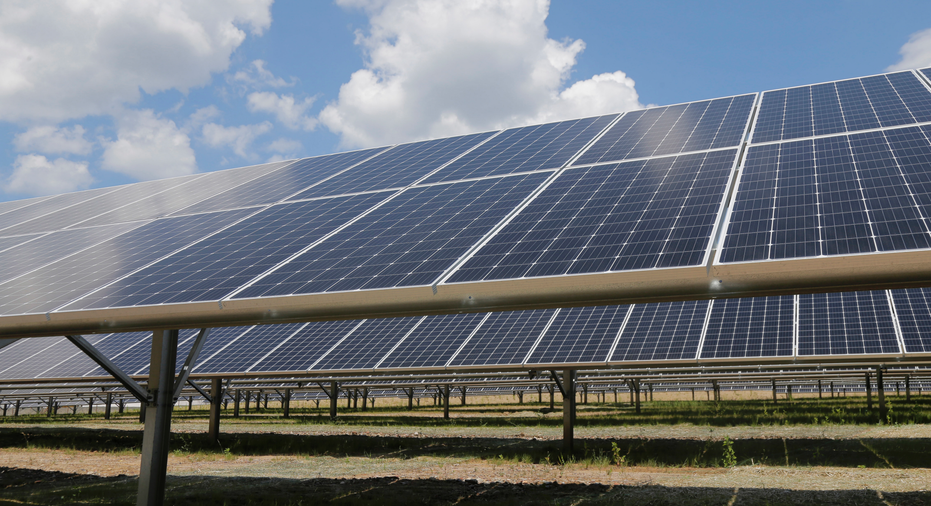Solar industry blames tariffs for canceled, delayed projects

NEW YORK – The solar industry is blaming tariffs for delays and cancellations of major solar energy projects.
An estimated $8 billion worth of utility-scale projects were canceled or put on hold for the five-year period that ends in 2022, according to a new report from the Solar Energy Industry Association and Wood Mackenzie Power & Renewables. The report says 9,000 jobs — mainly in construction and engineering — were either lost or not added because of the tariffs.
In January, President Donald Trump imposed tariffs of up to 30 percent on most imported solar cells used in solar panels, aiming to boost domestic manufacturing. The tariff rate will decline before phasing out after four years.
Projects were canceled during the lead-up to the announcement, when installers, banks and power purchasers did not know how high the tariff would be, according to Dan Whitten, spokesman for the Solar Energy Industry Association, the solar industry's main trade group.
"People kind of deferred planning," Whitten said. "They decided not to go forward with projects, because of that uncertainty."
But analysts at Wood Mackenzie are expecting many of the delayed projects to come online by the end of the year.
About 10 percent of solar panels installed in the U.S. are made domestically, Whitten said.
Tariffs also were imposed on materials such as steel, aluminum and electrical components, adding to the cost of building a solar farm.
"The only way that we are able to deliver projects is if we are the lowest cost alternative to what a utility is proposing to build themselves," said Bret Sowers, vice president of development and strategy at Southern Current, which builds solar farms mainly in the Southeast. "When you add up all of the tariffs, in addition to the tariffs on solar panels, the solar industry got hit really hard based on the components we use to build our projects."
Southern Current canceled or delayed about $130 million worth of projects that were planned for 2018 and a similar amount in 2019, Sowers said. The type of panels Southern Current uses are not currently made in the U.S., he said.
Cypress Creek Renewables cancelled or delayed $1.5 billion worth of solar projects that were planned for 2018 through 2020 because the higher cost of solar panels made it difficult to compete with other electricity sources, the company said.
Despite the tariffs, solar installations held up reasonably well, said Jeff Berman, a director at S&P Global Platts Analytics, in an email. Berman expects the impact to diminish as the tariffs weaken over the next few years. He said a bigger driver of installations will be the federal solar investment tax credit. That tax credit of 30 percent of the cost of residential or commercial solar systems will drop to 10 percent for utility and commercial installations and zero out for residential installations after 2021.
Representatives from the White House and the U.S. Trade Representative's office did not immediately respond to requests for comment.
Whitten notes that even if the tariffs jumpstart manufacturing in the U.S. as the Trump administration intends them to, solar manufacturing is highly automated, so "not many jobs would be created."



















